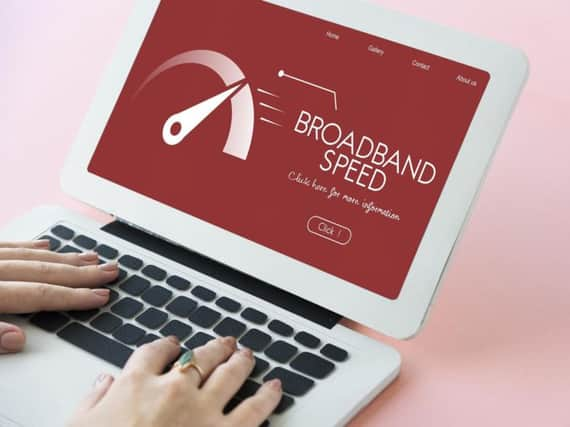Has your broadband firm caught you in a loyalty trap?


The fact is that their headline rates for new accounts are very often not the ones you, as a loyal customer, have been paying.
In fact, those of us who stay loyal to all the same providers year in, year out, are paying as much as £725 a year more than necessary.
Advertisement
Hide AdAdvertisement
Hide AdThat’s according to the consumer group Which? It says many people, restrained by inertia and perhaps put off by the interminable rigmarole of having to phone a call centre, never bother to push for a better deal.
However, in as many as nine cases out of ten, a spot of haggling will yield a much better price. Mobile phone providers are well known for capitulating in this way, but the principle applies equally to phone, broadband, energy, insurance and car breakdown cover.
Which? says customers on standalone broadband deals can an average of £120 a year, by arguing the toss, and the figure almost doubles for those with combined broadband and TV.
There are fewer hidden costs than there used to be in the prices advertised by broadband firms - the non-optional line rental fees, for instance, are now included - but the sector remains something of a minefield.
Advertisement
Hide AdAdvertisement
Hide AdYou don’t have to haggle to get a cheaper deal, of course - you can take your business elsewhere. Swapping broadband firms these days is quick and painless, and the principal deals are all listed on the price comparison sites. But when you’re comparing numbers, remember to factor in all the phone-related services for which you are currently paying and which the advertised prices may not include. Caller ID, for example, comes free with any mobile account but still costs the thick end of £2 a month on landlines. And you may be asked to pay an activation fee by your new supplier
Take your router into account, too. If yours is the basic one supplied by your existing provider, switching companies may be a cheap and effective way to upgrade it to a faster, more up-to-date model. On the other hand, if you have a decent one already, a replacement may constitute a downgrade.
The two factors most affecting the cost of a broadband deal are speed and the amount of data you’re allowed to get through in a month. Average usage has risen exponentially in the last couple of years as more of us stream high-definition and even ultra high-definition TV programmes from Netflix, YouTube and the iPlayer - and if you are in the habit of doing that, an “unlimited use” deal will save you the hassle and possible expense of exceeding your allowance.
Fibre broadband is a must for HD streaming, and even the basic fibre rate of around 38Mb may struggle with Ultra HD content.
Advertisement
Hide AdAdvertisement
Hide AdA little under £35, including line rental, is the current going rate for a 76Mb fibre connection with no usage cap. But read the small print to see whether the cost increases at the end of your 18-month contract, because that’s when the “loyalty trap” often kicks in. If that’s what has happened to you, this may be the new year to kick out your provider - or at least kick them back into the ballpark.